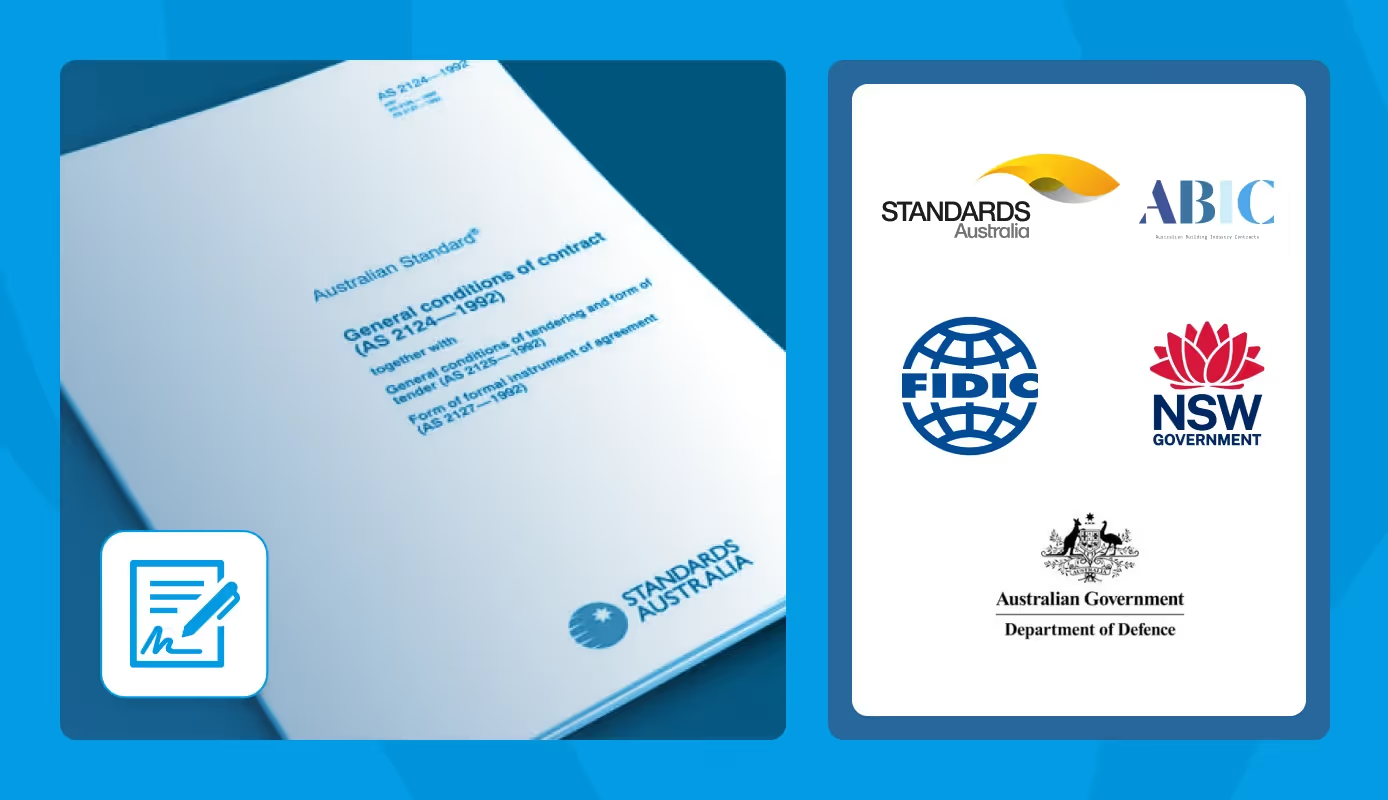As an essential part of any construction agreement, a contract clause might seem like just a bunch of legal mumbo jumbo. However, to many of us working in the industry, these clauses lay the groundwork for how a project will be completed, defining the relationship between parties and outlining responsibilities and protections.
Let’s talk about what is a clause in a contract and why it matters so much in construction agreements.
What Is a Contract Clause?
A contract clause is a specific provision or section within a contract that outlines a particular aspect of the agreement between the involved parties. Think of it as a rulebook for each part of the deal. Contract clauses specify the terms and conditions that must be met for both parties to fulfill their end of the bargain.
The contract clause definition might vary slightly depending on the context. But think of contract clauses as the rules of the game. Without them, we'd be playing footy without knowing how to score!
Need more insights on managing contracts? Check out this guide on Contract Administration.
What are the Types of Contract Clauses?
While there are dozens of potential clauses, here are the must-knows in construction contracts:
1. Delay and Extension of Time (EOT) Clauses
Delays happen. These clauses define acceptable delays and procedures for requesting extensions, protecting both parties from undue penalties.
2. Payment Clauses
These specify the payment terms, including due dates and amounts. If you get this wrong, your cash flow might suffer.
3. Timeline Clauses
These are all about deadlines. They ensure the project adheres to the agreed schedule, protecting against delays that can cause chaos.
4. Scope of Work Clauses
These define the work to be done, ensuring everyone knows what's expected. Misunderstandings here can lead to disputes over what was promised versus what was delivered.
5. Variations Clause
This clause outlines the process for making changes to the original scope of work or the contract variation. It typically covers how to request changes, the approval process, and how changes will affect the contract price and timeline.
6. Defects Liability Clause
This clause defines the contractor's responsibility for fixing defects after project completion. It usually specifies the defects liability period (often 12 months), the process for reporting and rectifying defects, and any warranties or guarantees provided. This clause is essential for ensuring the quality and longevity of the completed work.
7. Termination Clauses
These provide conditions under which the contract can be ended. They safeguard both parties, ensuring there are fair exit strategies if things go south.
8. Dispute Resolution Clauses
These outline how disputes will be resolved, whether through mediation, arbitration, or litigation. They aim to provide a clear path to resolve conflicts without escalating tensions.
9. Force Majeure Clause
This clause addresses unforeseeable circumstances that prevent a party from fulfilling their contractual obligations. It typically covers events like natural disasters, acts of war, government actions, and pandemics.
10. Indemnity Clause
This clause protects one party from financial loss caused by the actions or negligence of the other party. It's crucial to understand the extent of indemnity provided in your contract. Indemnity clauses can significantly impact risk allocation between parties and should be carefully considered.

Why Contract Clauses Matter in Construction Agreements
Failed construction contracts often make headlines, but most of these failures stem from poorly drafted or misunderstood contract clauses.
Imagine this scenario: a builder agrees to construct a house, but the contract doesn’t specify when payments are due. The builder completes 70% of the work but hasn’t seen a cent. Chaos ensues. This is why clauses matter—they provide clarity, accountability, and legal protection.
Here’s how contract clauses make a difference in construction:
Defining Responsibilities
First, contract clauses clearly spell out who's responsible for what. In construction, there are lots of people involved - contractors, subcontractors, and clients. It's important to know who's supposed to do each job. A good clause clarifies what each person needs to do, when they need to do it, and what happens if they don't.
Protecting Your Interests
The entire contract clause protects your interests by clearly defining roles, responsibilities, and expectations. Whether you’re a contractor or a client, these provisions ensure that you’re covered if something goes wrong.
Avoiding Disputes
Well-drafted clauses help prevent disputes by establishing clear guidelines and standards. If everyone understands what’s expected from the outset, there's less room for ambiguity and conflict.
Ensuring Compliance
Clauses often include legal requirements, ensuring the project complies with all relevant laws and regulations. This can save you from legal headaches down the track.
Managing Risks
Construction projects are inherently risky. Detailed clauses are a form of risk management, providing contingencies for various scenarios. This way, you're better prepared for unforeseen challenges.
Best Practices for Drafting and Negotiating Contract Clauses
When it comes to construction projects, well-crafted contract clauses can make or break your success. Here are some best practices that'll help you draft and negotiate these crucial components with confidence.
Use Clear Language
First things first, always use clear and specific language. Vague terms can lead to misunderstandings and disputes down the line.
Instead of saying "work will be completed in a timely manner," specify "work will be completed within 60 days of the project start date." This clarity helps everyone stay on the same page.
Plan for Worst-Case Scenarios
Next, consider the worst-case scenarios. While it's not fun to think about what could go wrong, it's essential to address potential issues in your contract clauses.
Include provisions for delays, changes in scope, and dispute resolution. This foresight can save you headaches (and money) later on.
Tailor Clauses to Each Project
Don't forget to tailor your clauses to the specific project. Cookie-cutter contracts might seem convenient, but they often miss crucial details.
Take the time to understand the unique aspects of each job and reflect them in your contract clauses.
Aim for Fair Negotiations
When negotiating, remember that it's not about winning or losing. Aim for a fair balance that protects both parties' interests.
Be open to compromise, but know your non-negotiables. For example, you might be flexible on payment terms but firm on safety standards.
Seek Legal Advice
Lastly, don't shy away from seeking legal advice. A construction lawyer can spot potential pitfalls you might miss and ensure your contract clauses are legally sound.
While it's an upfront cost, it can save you from costly legal battles in the future.
Final Thoughts: Why Contract Clauses Matter
In construction, contracts are more than just paperwork—they’re your safety net. Contract clauses bring clarity, protect your interests, and help manage risks. They aren’t just legal jargon. They’re practical tools to avoid disputes, cut costs, and keep projects on track.
By understanding these clauses, you can handle contracts with confidence. Instead of fearing the fine print, treat it as a guide to success. Payment terms, variations, and dispute resolutions all hinge on well-written clauses.






.avif)






.avif)

